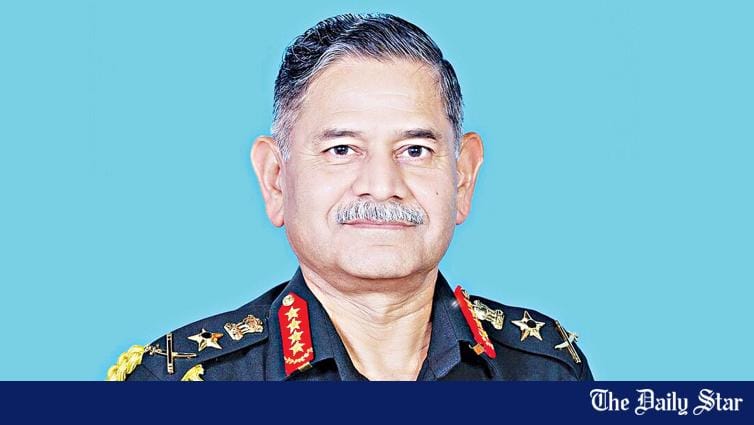- Copy to clipboard
- Thread starter
- #61
Saif
Senior Member
- Jan 24, 2024
- 11,837
- 6,673
- Origin

- Residence

- Axis Group


Dhaka-Delhi Ties: Normalcy to return once elected govt is in place
The India-Bangladesh relations will normalise once an elected government is in place, said Indian Army Chief General Upendra Dwivedi yesterday.
Dhaka-Delhi Ties: Normalcy to return once elected govt is in place
Says Indian army chief

Upendra Dwivedi
The India-Bangladesh relations will normalise once an elected government is in place, said Indian Army Chief General Upendra Dwivedi yesterday.
"The military relations between the two countries remain perfect. But if you talk about the overall relations between the two countries, I would say that it will be normal once an elected government comes to power," he said in his annual press conference ahead of the Army Day celebrations in New Delhi.
Dwivedi described Bangladesh as a "strategic neighbour" and said any kind of animosity between the two countries is not in the best interest of either nation.
"I take your mind back to when the Bangladesh army chief recently said that India was a strategic neighbour of his country. It is the same vice versa -- Bangladesh is strategically important to us. We are neighbours. We have to live together, understand each other, and any kind of animosity is not in each other's interest."
The Indian army chief said he has been in regular contact with his Bangladeshi counterpart, Waker-Uz-Zaman, including during the regime change.
He mentioned a video conference with Waker on November 24 last year and has stayed in touch with him since.
Bangladesh shares a significant border with India, except for a small portion in the southeastern region, and no other country shares such an extensive border with India, he said.
The comments come at a time when relations between the two countries remain strained in the aftermath of the ouster of Sheikh Hasina and her fleeing to India.
The two countries have summoned their envoys in Dhaka and New Delhi amid tensions over border fencing by the Indian Border Security Force.
Although the relationship between the militaries of the two countries remains "perfect", the joint military exercises have been temporarily put on hold due to the current situation in Bangladesh.
The joint military exercises would resume once the situation stabilises.
On military cooperation, he said it is "on the rise again."
Responding to a question about the vulnerability of India's northeastern states following allegations that "anti-India" elements were being allowed free movement near the border, Dwivedi said: "There is no vulnerability from either side."
Says Indian army chief
Upendra Dwivedi
The India-Bangladesh relations will normalise once an elected government is in place, said Indian Army Chief General Upendra Dwivedi yesterday.
"The military relations between the two countries remain perfect. But if you talk about the overall relations between the two countries, I would say that it will be normal once an elected government comes to power," he said in his annual press conference ahead of the Army Day celebrations in New Delhi.
Dwivedi described Bangladesh as a "strategic neighbour" and said any kind of animosity between the two countries is not in the best interest of either nation.
"I take your mind back to when the Bangladesh army chief recently said that India was a strategic neighbour of his country. It is the same vice versa -- Bangladesh is strategically important to us. We are neighbours. We have to live together, understand each other, and any kind of animosity is not in each other's interest."
The Indian army chief said he has been in regular contact with his Bangladeshi counterpart, Waker-Uz-Zaman, including during the regime change.
He mentioned a video conference with Waker on November 24 last year and has stayed in touch with him since.
Bangladesh shares a significant border with India, except for a small portion in the southeastern region, and no other country shares such an extensive border with India, he said.
The comments come at a time when relations between the two countries remain strained in the aftermath of the ouster of Sheikh Hasina and her fleeing to India.
The two countries have summoned their envoys in Dhaka and New Delhi amid tensions over border fencing by the Indian Border Security Force.
Although the relationship between the militaries of the two countries remains "perfect", the joint military exercises have been temporarily put on hold due to the current situation in Bangladesh.
The joint military exercises would resume once the situation stabilises.
On military cooperation, he said it is "on the rise again."
Responding to a question about the vulnerability of India's northeastern states following allegations that "anti-India" elements were being allowed free movement near the border, Dwivedi said: "There is no vulnerability from either side."

